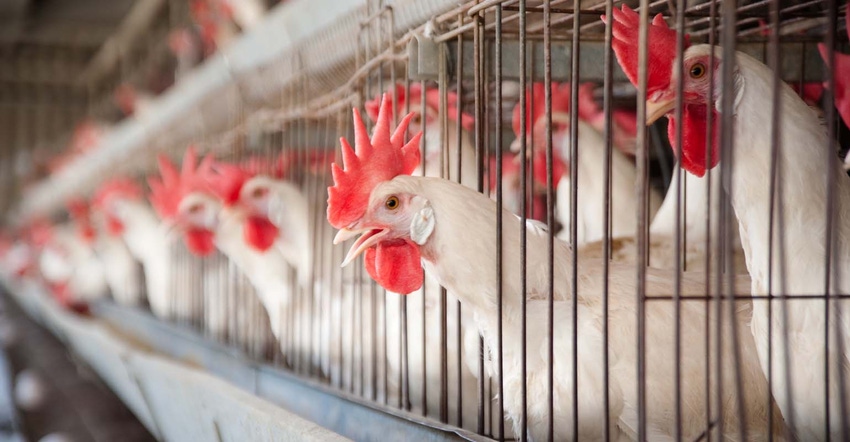
The U.S. Supreme Court held a conference on April 13, 2018, to decide if Indiana and Missouri can bring legal actions (Bill of Original Complaint) against California and Massachusetts. This case will have an important impact on agriculture. The Supreme Court punted on April 16, and asked for the views of the DOJ’s Solicitor General on the two cases.
USDA states U.S. per capita egg consumption is steadily increasing. You and I consume on average 275 eggs per year. In 2011, per capita egg consumption was approximately 250 per year. California wants to tell egg producers nationwide how to house laying hens producing a shelled egg. It is interesting California realizes it cannot regulate eggs shipped in liquid form or in some other form.
In 2015, California passed a law which stated, “a shelled egg shall not be sold or contracted for sale for human consumption in California if the seller knows or should have known that the egg is the product of an egg-laying hen that was confined on a farm or place that is not in compliance with animal care standards set forth in the state code.”
As you may remember, California voters led by HSUS and Hollywood personalities, convinced California voters in 2008 to “…forbid a person in California from tether[ing] or confin[ing] certain animals, including egg-laying hens, on a farm, for all or the majority of any day, in a manner that prevents such animal from: (a) Lying down, standing up, and fully extending his or her limbs; and (b) Turning around freely.” California tells the Supreme Court not to recognize Missouri’s legal claims because California law only regulates hen-confinement practices in California. California’s Attorney General further claims state law only applies to the sale of eggs within California.
California’s opposition to Indiana and Missouri states its legislature is seeking to only “…protect California consumers from the deleterious, health, safety, and welfare effects of the sale and consumption of eggs derived from egg-laying hens that are exposed to significant stress and may result in increased exposure to disease pathogens including salmonella.”
California’s legislature believes egg-laying hens, if stressed by living conditions, produce more diseased eggs. This claim has been debunked by Indiana’s and Missouri’s briefs. California’s legislature relies on reports from the Pew Commission, World Health Organization and Food and Agricultural Organization of the United Nations. These groups claim “[e]gg-laying hens subject to stress are more likely to have higher levels of pathogens in their intestines.” California’s legislature, relying on the preceding three organizations’ reports, found “reducing flock prevalence [i.e., crowding] results in a directly proportional reduction in human health risk ...food animals that are treated well and provided with at least minimum accommodation of their natural behaviors and physical needs are healthier and safer for human consumption.”
California believes it has taken measures to reduce salmonella contamination and states clearly in its opposition brief to the Supreme Court that California is going to prohibit sale of shelled eggs from laying hens kept in cages or enclosures that do not provide a minimum amount of floor space per bird. California believes consumers are demanding these enclosure size requirements because consumers want their shelled eggs to be safe. Note, not all eggs are sold in the shell and many of them come to the restaurant industry in liquid form.
We all have read many of the United States’ largest food retailers have pledged to use cage-free eggs by 2025. An article in Food Navigator stated on October 30, 2017, that U.S. egg producer, Rose Acre Farms, was shutting down its cage-free construction program. A small problem has developed apparently. The food retailer and other food retailers are not willing to pay the extra costs the suppliers have found in transitioning to cage-free production. California never addresses that issue, nor does California address the studies cited by Indiana and Missouri which debunk the allegation that more cage size for a laying hen creates a safer egg.
California’s argument is ludicrous. It is attempting to stop all states from shipping shelled eggs to California. Will California keep eggnog, egg rolls, egg salad, convenience foods including egg products and even bakery goods which utilize egg products? Reports claim 3 billion pounds of all types of egg products are produced each year in the United States.
Apparently, California does not realize the fact eggs are shipped in more than one form. Hopefully the United States Supreme Court will recognize this fact as well and allow Indiana’s and Missouri’s claims against California and Massachusetts to go forward.
The opinions of the author are not necessarily those of Farm Futures or Farm Progress.
About the Author(s)
You May Also Like




